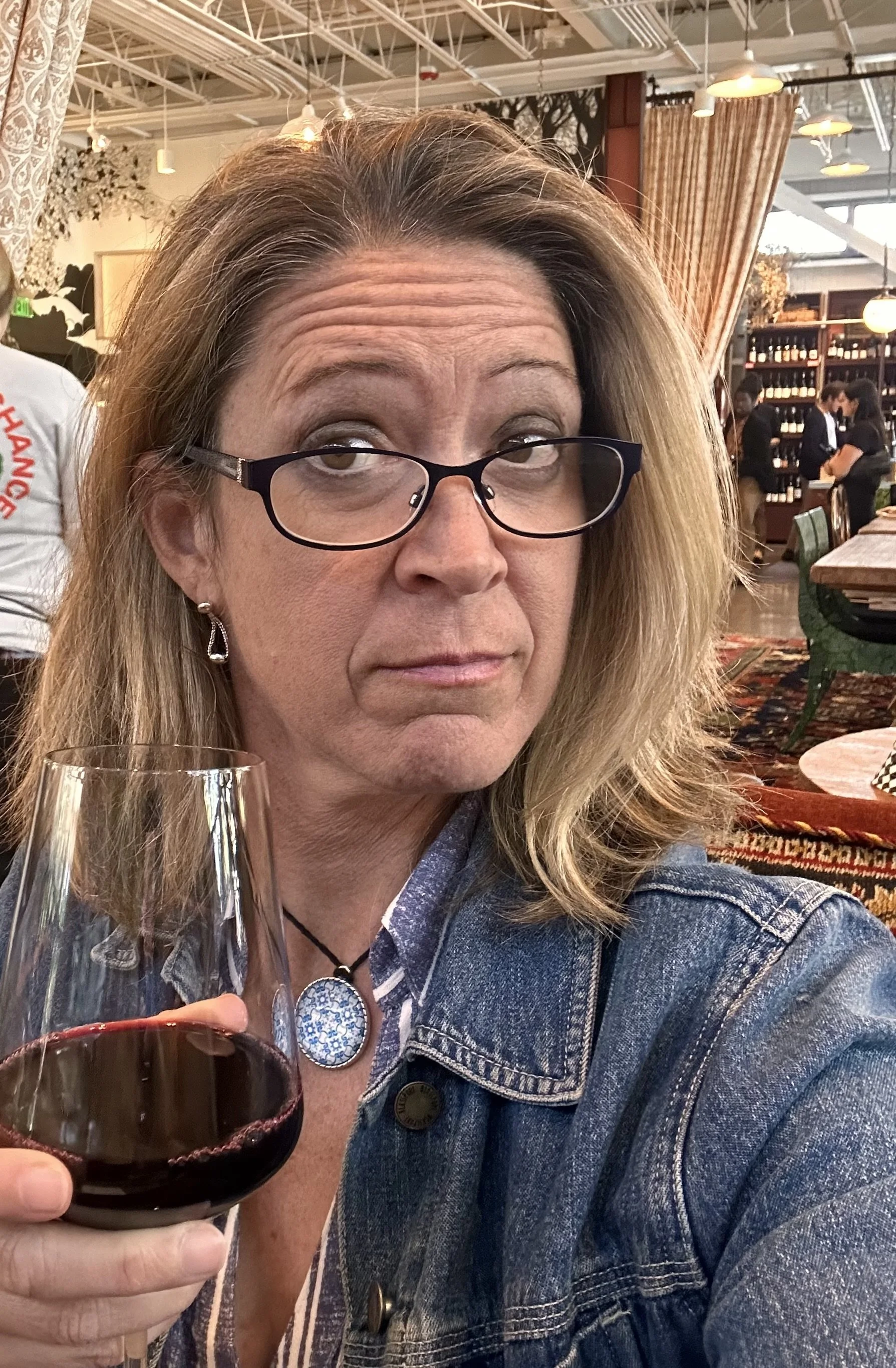Are You —> Above the Line or Below the Line
Dr. Jenn Gunsaullus - YPO Forum Retreat Facilitator on Having Difficult Conversations
Are You --> Above the Line or Below the Line?
When you feel triggered by a person, conversation, or situation, do you stay above the line, or drop below the line?
I used this concept this month at a retreat in Napa Valley (hence the wine and contemplation in the photo!). We were diving into how to have controversial conversations in a way that creates openness and vulnerability while maintaining respect and connection. In today's conflicted world, with deeply dividing topics like the upcoming US election, reproductive rights, Palestine/Israel, gun rights and school shootings, racial and gender inequality, workplace DEI, immigration, and economic inequalities, this approach is more important than ever.
It's also crucial for more personal topics, such as insecurities, trauma, jealousy, resentments, disappointment, infidelity, mismatched desire levels, differing intimacy interests, fear of rejection, and so much more. Many emotional and intimate aspects of a long-term relationship can trigger us into well-worn patterns of behavior and reactivity.
How is the concept of being “above the line” or “below the line” relevant to this broad range of difficult and uncomfortable topics? The idea is that there is a metaphorical line separating two different mindsets and behaviors.
Above the line represents an open, curious, and flexible mindset focused on learning, taking responsibility, and finding solutions. It involves asking questions like "What can I do differently?" and "What more can I learn and understand?" It also means asking genuine curiosity questions to others, such as, "Tell me more about what that was like for you?" and "What did that feel like?"
Below the line represents a closed, defensive, reactive mindset focused on blaming, making excuses, and being committed to being right. It involves language like "It's not my fault,” “I have to…,” and “They always…” or “They never…”. Being below the line means being rigid and binary in thinking and can include being disrespectful and controlling.
While this is an abbreviated description of this more complex concept, consider how creating this simple structure could be both empowering and connecting as an ongoing personal check-in. Reflect on what topics or situations pull you below the line, making it difficult for you to stay communicative and engaged with curiosity and respect.
The next time you’re triggered in one of those situations and feel like you want to emotionally retreat or lash out, ask yourself: "Am I above the line or below the line? And what can I do to stay above the line?"
This is an ongoing journey in awareness and courage.
(This concept was created by The Conscious Leadership Group, and I learned about it through the Enneagram Prison Project. Thank you both for your powerful and valuable work!)
-Dr. Jenn Gunsaullus, YPO Certified Forum Facilitator and YPO Retreat Facilitator
